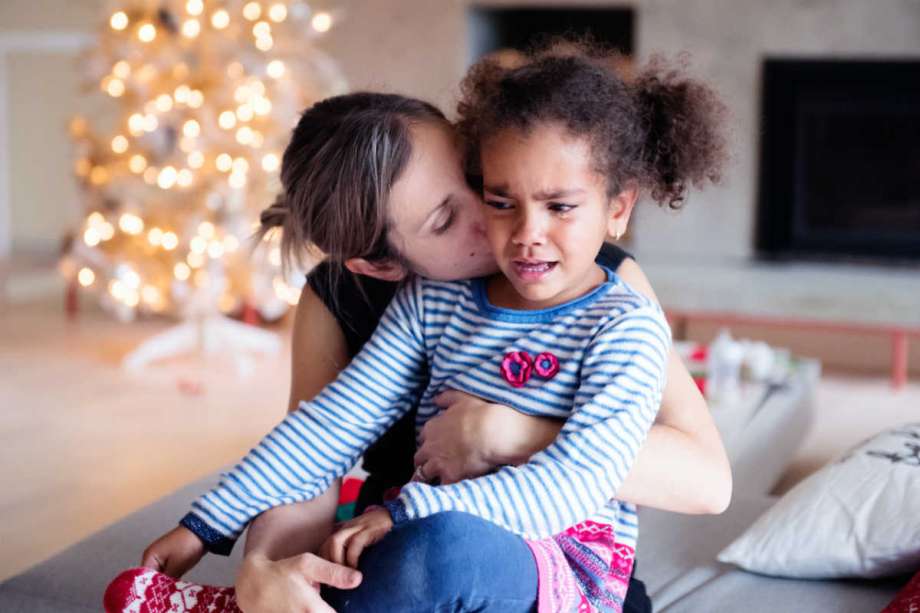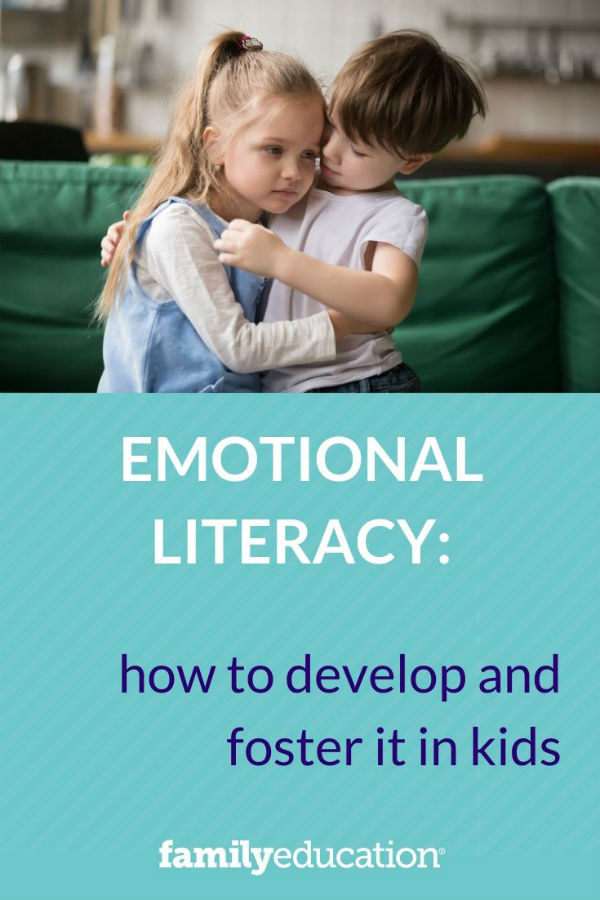Developing Emotional Literacy in Kids and How to Foster It Over Time

What is the biggest challenge your family faces? Financial challenges? Getting time together? The distraction of social media? Quarreling?
However, you answer that question, there is one root and one path to creating something different. Surprisingly, for many people, the root is our lack of emotional learning, our emotional ignorance. And the solution is developing our understanding of emotions or emotional literacy.
More: How to Determine Your Child's Love Language
Parents want their children to succeed. We nurture our children physically and send them to school to build their knowledge and skills, but we can't teach them what we don't know. I have yet to meet a parent who claims to be deeply knowledgeable about emotions, their meaning, their purpose, or knows how to use them as a tool.
Why is this so? Primarily it is because we've focused on intellectual development and left emotional development to chance. We hope our children will grow up to be well adjusted emotionally, but most of us haven't known how to address it directly.
So what can you do to foster emotional literacy in kids?
Don't have time to read now? Pin it for later:

Build your emotional awareness and knowledge.
Studies show that most people verbally express only 15 to 20 emotions, but there are over 200. We tend to call many emotions by a single name. Frustration, annoyance, irritation, impatience, and aggravation are often lumped together as anger. Learning to name emotions precisely will bring more clarity to what you are feeling.
If you need additional aid building your child's emotional literacy, we recommend Saturday Club Story Box. Saturday Club Story Box aims to nurture empathy, introduce mindfulness and develop an emotional toolkit for kids aged three to seven years old. The subscription box is available as a one-time monthly purchase or as a six-month and annual subscription. Each box contains a storybook, a children's journal, emotional cards, a grown up's guide, and an audiobook all designed to enhance emotional literacy and understanding. Many of the materials will help you expand your own vocabulary, too! Browse Saturday Club Story Box's Offerings.
Talk to your children about emotions.
If we want our children to learn to cook, play music or understand literature, we talk with them about those things. We sometimes avoid talking about emotions because we are uncomfortable with them and think our children will be as well. Children can be surprisingly wise about their emotions and what their emotions are telling them. When you share your emotions explain what they mean to you, your children will be learning a new vocabulary.
Respect your emotions; respect your children's.
When someone experiences an emotion, it is their reaction to what they've experienced. They have a story about that experience that looks real to them. Listening to their story with compassion means you are present and respect their way of seeing things but does not mean you have to fix things. Sometimes the most important thing we can do is listen. Once your child feels acknowledged, they will be able to work with their emotions constructively.
There is as much to learn in the world of emotions as there is in the world of science and math. Building your emotional literacy can be motivating, inspiring, and is sometimes humbling. But, if you want a family that truly understands each other and works together, you need more than intelligence. A bit of time invested in emotional learning will result in gratitude, connection, and joy!
Do you have a highly-emotional child? Here are our top tips for facing tough situations like discipline with a highly-sensitive child.
Dan Newby is the founder of schoolofemotions.world and author of several well-received books on Emotional Literacy. He works with individuals and organizations globally to elevate their emotional awareness and competence. He is a global champion for emotional learning and literacy. Dan leads online courses and workshops throughout the world, helping people build their comfort and understanding of emotions. His book, The Unopened Gift: A Primer in Emotional Literacy and other works, can be found at www.schoolofemotions.world

